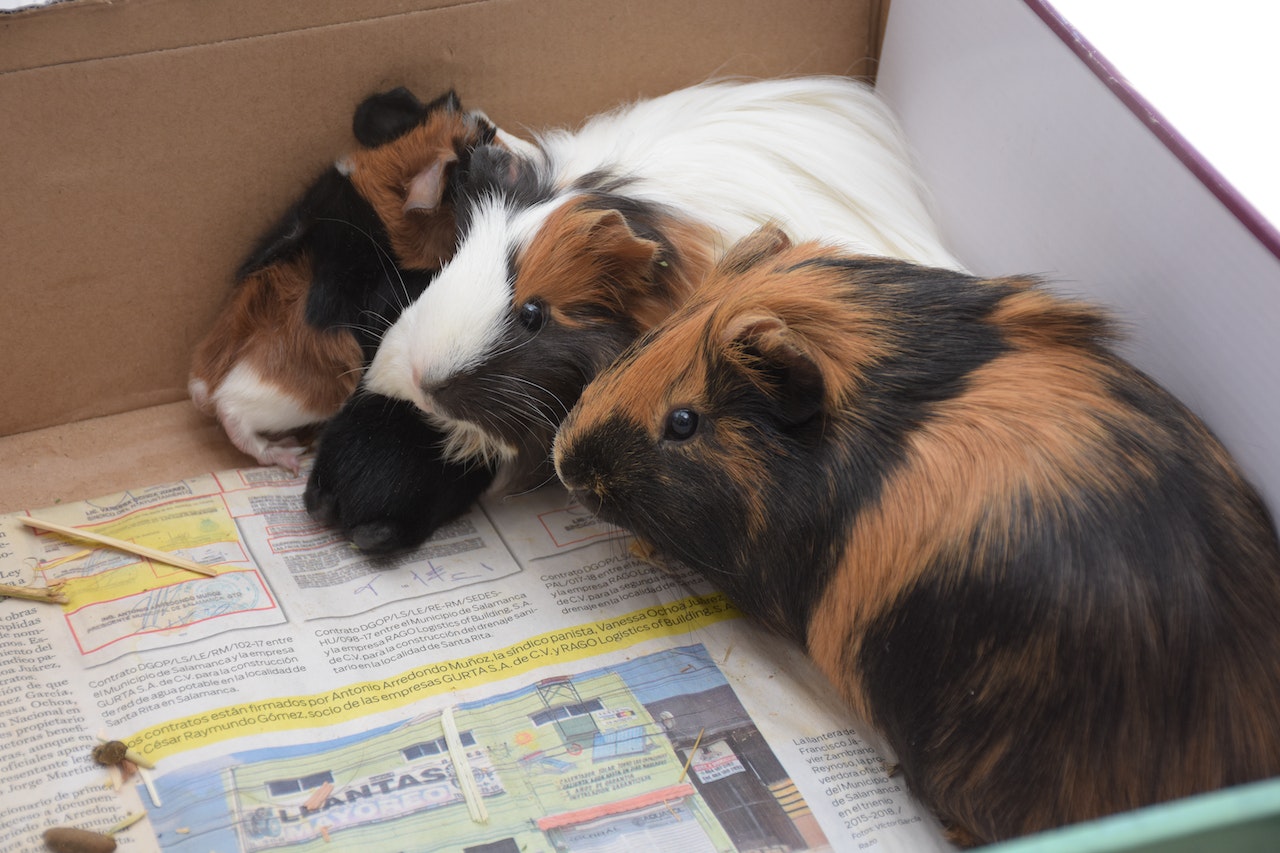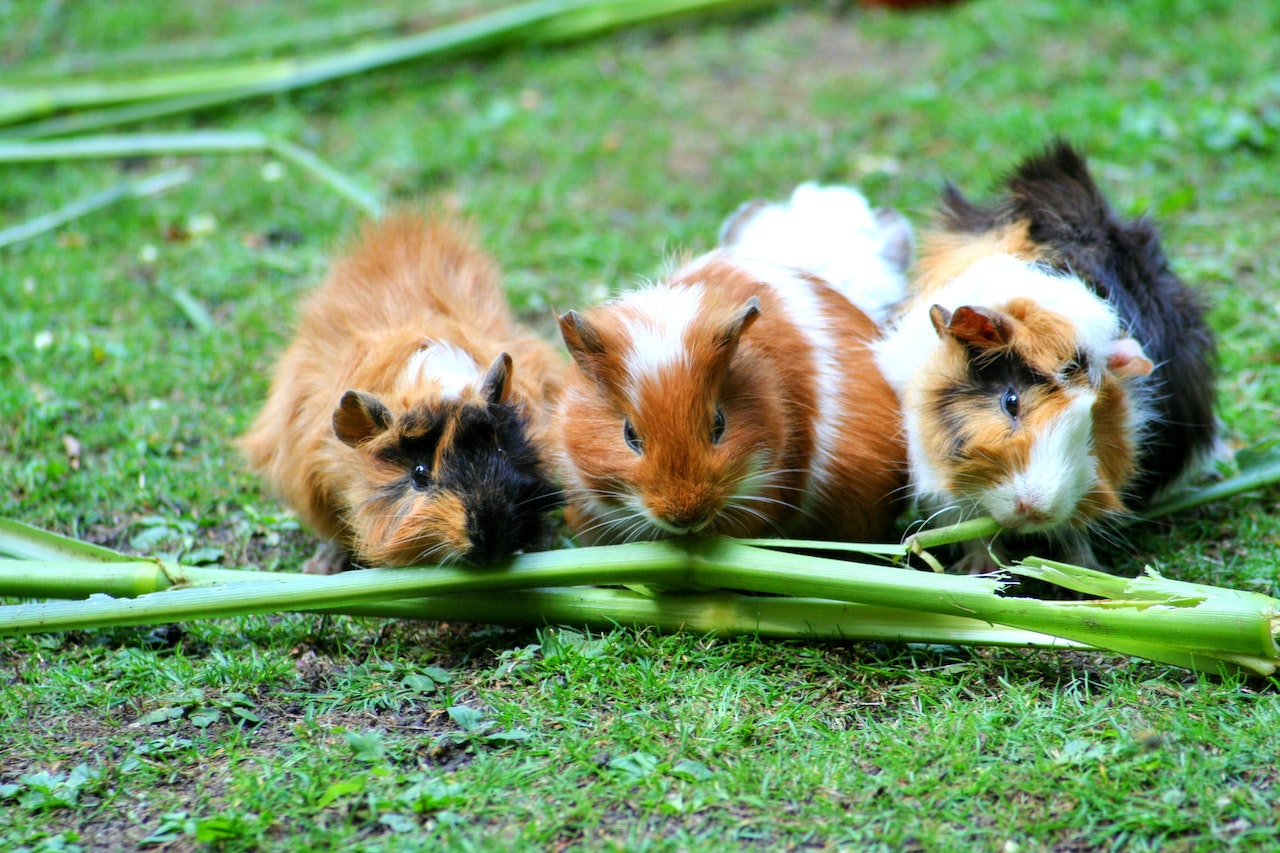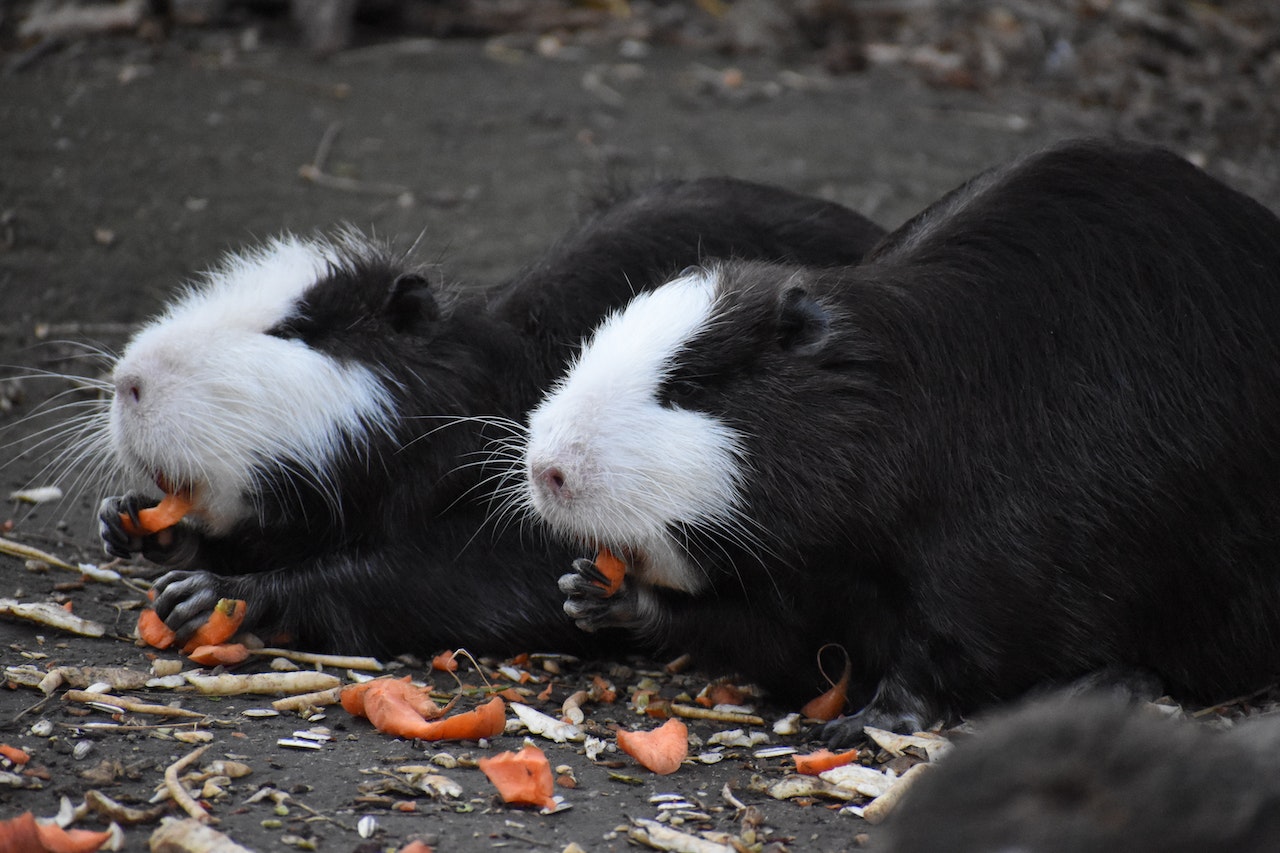
Pepper also known as the genus Capsicum is a member of the nightshade family with a vibrant color. They are also fleshy simple fruit that falls into the fruit classification of berry. Pepper is an indehiscent fruit that comes from a superior ovary with a thick exocarp, fleshy mesocarp, and endocarp. Pepper comes in various varieties and colors and each variety has its specific benefits attached to them. However, all the pepper can be eaten either raw or cooked, with or without seed.
However, studies have shown that the more peppers you eat in your diet, the more they boost your ability to fight age because they are a rich source of antioxidants, vitamin C, and Beta carotene. These antioxidants protect the body by neutralizing free radicals and harmful molecules that build up naturally in the body and cause cell damage. However, can guinea pigs eat peppers? What varieties of pepper can guinea pigs eat? Continue reading this article to find out the answer to these questions.
Can guinea pigs eat peppers?
Yes, guinea pigs can eat peppers but only in moderation. Peppers are one of the fruits that provide various health benefits for your little cavies because of the helpful nutritional benefits present in them. Although they mostly possess a vibrant color, however, you will see them enriched with vitamins, minerals, antioxidants, fibers, and some other essential nutrients. They also contain low amounts of sugar and fats which make them ideal for your cavies. However, not all types of pepper should be given to your little cavies, an example is hot/spicy pepper like jalapêno which contains a chemical substance that can harm the digestive system of your little cavies.

In what proportion should pepper be given to guinea pigs
Apart from some pepper being too hot and spicy for your little cavies, pepper in general also contain calcium and some other nutrients which should not be present in high proportion in your guinea pigs' body system to avoid health risks like bad digestion for them. Hence, pet owners need to understand the correct way of feeding pepper to guinea pigs. 1-2 slices of small pepper or a few chunks of medium-sized pepper should be given to your little cavies twice or thrice a week. However, for healthy living, pepper should be added or mixed with other vegetables to create a balanced diet for them.
If you are just introducing pepper to your little cavies, make sure it is in a small proportion compared to the standard proportion, and they must be placed under 24-hour observation to watch out for any allergy reaction.
What are the health benefits of feeding pepper to guinea pigs
Peppers are well-known not only for their strong flavor and aroma but also for the many positive effects it has on your guinea pigs' body. Some of the advantages to their health from consuming pepper are as follows:
Lower blood pressure and improve the immune system
Studies show that guinea pigs with high levels of vitamin C in their bodies (based on the vitamin C concentration in their plasma) are less likely to have high blood pressure, especially if they have a high-quality diet. Also, a strong immune system relies on a steady supply of vitamin C, which can be found in abundance in pepper. Vitamin C can lessen the severity of cold and flu symptoms and help the body fight off infections.
Good digestive health
Despite only having 30 calories in every cup serving, raw peppers contain 2.5 grams of dietary fiber. Dietary fiber helps promote digestive health by adding bulk to their stools. They also help with digestion by boosting digestive enzyme synthesis and general gut health. Indigestion, gas, and constipation are just some of the digestive issues that may benefit from its use.
Reduced risk of diabetes and discomfort
High-fiber foods, such as bell peppers, slow down how quickly sugar is absorbed into the bloodstream. Vitamin C may also help reduce blood sugar levels in pets with diabetes. Capsaicin in peppers can also be used to alleviate pain. Arthritis and body and nerve pain can all be alleviated thanks to their ability to prevent the brain from receiving pain signals.
Boosts cardiovascular health
Antioxidants and anti-inflammatory chemicals found in abundance in red pepper have been shown to lower cardiovascular disease risk. Consuming red pepper in a correct proportion by your pets has been demonstrated to have beneficial effects on cardiovascular health, including reducing cholesterol levels and increasing blood flow. They can also be used to boost metabolism and aid in weight loss.
Possible health risks of feeding pepper to guinea pigs
Digestive problem
Some pepper especially jalapênos contain a compound called capsaicin, this compound is responsible for the spicy nature of this fruit. Guinea pigs with sensitive stomachs will find this pepper extremely hot and spicy for them, and this can result in mild to detrimental digestive problems like heartburn, abdominal bruises, pain, bloating, nausea, etc.
Urinary problem
It has been established above that pepper are enriched with a lot of health benefits nutrients, and among such nutrients are calcium and phosphorus. These two nutrients can lead to urinary diseases if too much of them is present in their body system. It causes health issues by accumulating together to form kidney or bladder stones. These stones will cause blockage of essential nutrients which then lead to painful urination or bloody urine.
Can guinea pigs eat green/red pepper?
Yes, guinea pigs can eat green or red pepper since they are highly rich in vitamin C. The green ones are the unripe ones, while the red ones are ripe however, both are enriched in lutein and zeaxanthin which are good for promoting good eyesight and skin for your little cavies.
Can guinea pigs eat jalapênos
No, guinea pigs should not be given jalapênos since they contain a high amount of capsaicin. This nutrient is known for making pepper hot and spicy. So your little cavies should avoid this since they contain high amounts, and this can be dangerous for your little cavies.
Conclusion
Guinea can eat pepper but not all varieties of pepper. Some of the peppers that guinea pigs can eat and cannot eat have been made mentioned in this article. Some benefits and health risks of also eating guinea pigs have also been explained in this article.



